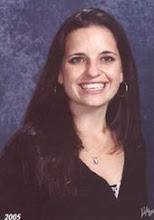
In "On Being a Cripple," Nacy Mairs uses humor and a blunt self-depreciation to approach her handicap. By using the word "cripple," Mairs claims that she empowers herself. While I certainly respect Nancy Mairs's right to define herself as she chooses, I think that the use of the word "cripple" shocks and dismays. Other people could not apply this same term to Mairs; only she can use it. Therefore, the humor and light-hearted tone applied to her disability gain power when she is alone, but lose power in the presense of others.
Mairs begins her essay with a rather comic scene of herself in the ladies' room as she falls back onto the toilet seat in an "old beetle-on-the-back routine." Mairs immediately reveals her position, showing the reader that she has the ability to laugh at herself, especially when alone. Had another person been there, she'd "have been still and faint and hot with chagrin," suggesting that shame accompanies the eyes of others. It is a case where laughter empowers in solitude rather than in a group.
Humor can also come from name-calling, although it is a rather cruel or cynical laughter. Mairs claims that naming is an issue of semantics. "I am a cripple" she declares proudly. She wants other people to "wince" so that they see her as "a tough customer." Claiming that calling herself a cripple allows her to seem strong and brave, Mairs says that using the word allows her to "swagger." She does not want pity; she wants awe. She certainly calls attention to herself through this word, shocking the reader.
Mairs can call herself a cripple, partly to laugh at herself, but also as an act of self disdain. She says, "Because I hate being crippled, I sometimes hate myself for being a cripple;" she expects occational self-loathing. However, Mairs also sees this self-hatred as part of every woman's experience as she looks through magazines and tries to measure herself to perfection. I wonder. Is she bitter that she cannot be cured? Is calling herself a cripple a stab at her disease as well as an affirmation?
In addition to claiming the title of "cripple," Mairs successfully shows the reader that other terms do not apply to her. She is not disabled because, in fact, she has many abilities. She also doesn't like the word handicapped because she feels that word gives the power to someone else, perhaps to God, but Mairs wants to feel in control of some parts of her life since she cannot control her disease.
Mairs tells the reader, "call me 'disabled' or 'handicapped' if you like" because she feels that society is "no readier to accept crippledness than to accept death, war, sex, sweat, or wrinkles." This line adds more humor to the essay by moving from the very serious topics of death and war to the trivial one of wrinkles. Interestingly, it seems that Mairs feels discussion about the body itself, its needs, processes, and aging, as well as its imperfections, make other people uncomfortable. The body is funny. As her disease combines many of these elements (death, war, decay, fumbles), Mairs feels that her situation is both comic and tragic. However, Mairs admits that she would call only herself cripple, that calling someone else cripple would be wrong. I ask, why call yourself something that you would never call anyone else? It must not be that funny.
I agree that Mairs empowers herself with her language. In a way, she also empowers her readers in the paragraphs that follow, describing her personal experience with MS, multiple sclerosis. She educates and informs others so that her audience can understand her physical limitations and her personal history, including her strengths and abilities. Information leads to understanding, and resoect follows shortly thereafter. In the end, Mairs doesn't want pity, although she accepts help. Overall, she wants her family and friends to "treat [her] as an ordinary human being for whom they have some use," and she hates people who "fake" kindness.
The essay is not about the word cripple. It is about Mair's personal experiences, pains, and triumphs. It is about her fears. It is about how realizing both one's strengths and one's weaknesses can create personal power. I admire Mairs's eloquence and her ability to laugh at herself, something sorely lacking in many people. However, then I think, did she call herself a cripple to make her audience read the article? Would "On Being Disabled" or "Living with MS" have been so attention-catching? By evoking shock and anger before shifting focus, was Mairs simply employing a literary technique? Mairs calls herself a cripple as an act of defiance, but in this context the word can give only her--the "cripple," the writer-- power. But perhaps that is what she intended in writing the essay all along.

